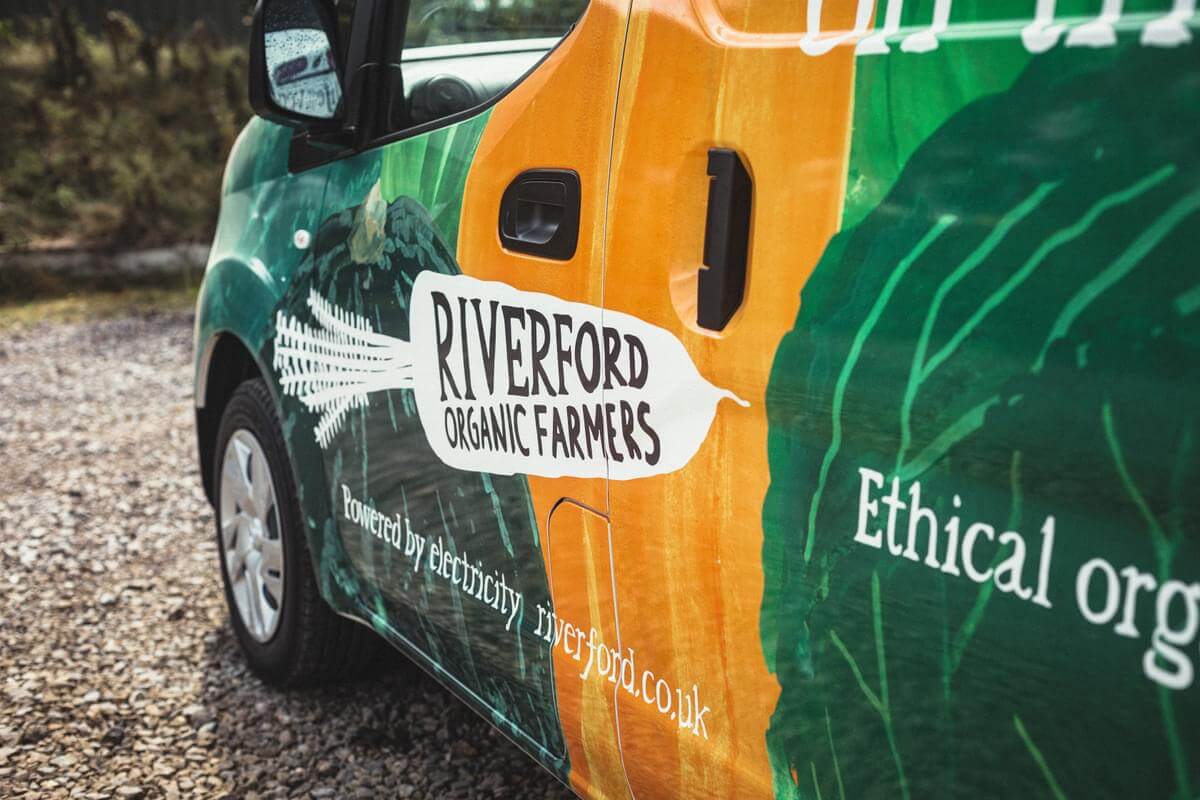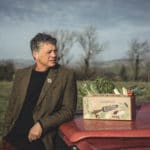We started measuring our contribution to climate change almost 20 years ago, before there was any agreement on how to do this. In those years, we’ve learned that the path to sustainability is being laid by patient, detail-focused engineers, scientists, and statisticians with little interest in marketing and politics. Detail matters, and success depends on persistent planning, consistent governance, and painstaking implementation.
When it comes to our urgently needed green transition, decisions need to be made as far away from myopic politics, lobbying, and marketing as possible – by those with in-depth knowledge and a long-term, well-evidenced plan. Riverford’s greenhouse gas (GHG) emissions per delivery have reduced 30 per cent in four years. To reduce further, the most important challenge is transport, which makes up almost 70 per cent of our total operational emissions. Our reading of the evidence suggests electric vehicles (EVs) give a 60 per cent reduction in lifetime emissions compared to internal combustion engine vehicles (ICEVs); this will reduce even more once the grid is fully renewable in 2035. Add in the benefits of improved air quality and we were in no doubt that this was the right choice. We forged ahead with a plan for 100 per cent of our vans to be electric by 2025.
Well, planning proved easier than doing. We ran into problems with the supply of electric vehicles, having to rearrange rounds to stay within EV ranges, managing driver “charge anxiety”, renegotiating driver contracts, and EV charging infrastructure itself. We even flirted with delivery tricycles for urban areas; after some initial enthusiasm, they proved unpopular with drivers. Perhaps the biggest issue has been finding hubs where we can get grid connections large enough to charge up to 25 of our vans overnight. It can also take three months to get an answer from the local electricity company. We clearly underestimated the challenges, as have the government and National Grid. Currently 30 per cent of our deliveries are made by EVs, which we estimate cost about 14p more per delivery. At this point, our best guess is that our vans will be 90 per cent electric by 2025.
As with so many aspects of a green transition, the costs are proving less of an issue than the urgent need for a long-term, politically acceptable plan – carefully and consistently implemented.
















0 Comments